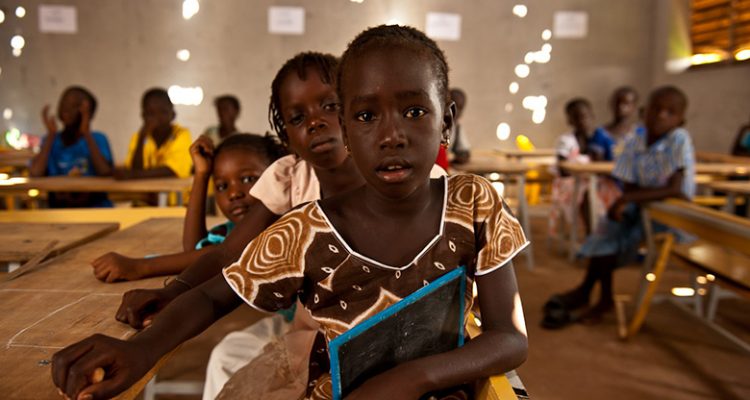A recent World Bank study [1] highlights a “serious crisis in the education and training of young people in Africa” that undermines the growth of the region and harms the well-being of its people. The continent has made significant progress in schooling in recent years.
Access to primary school benefits 80% of children, compared to 64% in 2000 and nearly four out of ten children attend secondary education, compared with less than three in the early 2000s. universal education has often been at the expense of the quality of education. On the continent, while 80% of children complete primary education, only an average of 50% have acquired basic reading skills [2].
Inequalities between girls and boys persist so much that in the Democratic Republic of Congo (DRC), Mali or Ethiopia, a girl goes to school twice as long as her brother. To these problems of access to education are added demographic issues. Africa has 600 million young people or 50% of its population.
By 2030, 170 million more children will have to go to school. For the same access to education, it will therefore be necessary to recruit 1.3 million additional teachers. The increase in the number of school children is so rapid that there is a significant shortage of teachers. Education systems already under tension will not be able to cope with this new wave without real plans of action at the state level.
Given the scale of need, governments are spending a growing share of their budget resources on school, but with very unequal investments. A quarter of the national budget in Senegal is devoted to education, compared with only 7% of that of Nigeria.
Given the scale of need, governments are spending a growing share of their budget resources on school, but with very unequal investments. A quarter of the national budget in Senegal is devoted to education, compared with only 7% of that of Nigeria. Some countries are also tempted to make choices, such as Ethiopia which has built nearly forty universities in recent years at the risk of sacrificing primary and secondary school enrollment in a country where students represent only 0.8% of the population.
Other countries, such as Senegal or Côte d’Ivoire, have chosen to focus on digital education with virtual universities to meet the influx of students. But launched in a rush, these universities based on 100% e-learning have made many disappointed because of deplorable reception conditions, tutors little present and not enough to supervise students enrolled. The approach nevertheless appears very interesting in a continent where the penetration rate of information and communication technologies (ICT) is exploding – and mainly that of the mobile phone.
The use of ICTs in education opens new perspectives for the continent; and all actors in the sector are concerned – policy makers, school heads, teachers, and students. This m-education can first of all offer wide-scale access to quality course content but also provide academic support to students. To combat school failure in Kenya, the mobile app M-Shule has developed training that adapts to the pace of learning and the difficulties of everyone through the use of personal data and artificial intelligence. The scores of the 400 students who tested the application at the end of 2017 increased by 23% over the period.
Digital technology can also improve teacher training. Many initiatives have emerged such as the Primary Teaching Learning Program, jointly developed by UNESCO and Nokia, which offers distance learning courses. These programs also partly address the problem of teacher shortage by offering greater flexibility in training organization.
Finally, ICT makes it possible to overcome the lack of data for the management of national education systems. The Mirador software, developed by Senegalese engineers, calculates in real time the needs of 9,000 Senegalese primary and secondary schools. The system is able to detect if a math teacher is missing to complete the defined number of hours and automatically allocate an additional teacher to the school. Mirador saves considerable time and money for the Senegalese government, and software is now of interest to many countries in sub-Saharan Africa.
If digital and ICTs are recognized as powerful levers of economic and social development on the African continent, their deployment in the education sector deserves greater attention and the establishment of dedicated government policies to cope with challenge of education in Africa in the years to come.
[1] World Bank, Perspectives: School for Learning in Africa, September 2018
[2] With considerable disparities between countries as in Niger where only 9% of pupils master reading at the end of primary school


Leave a Reply